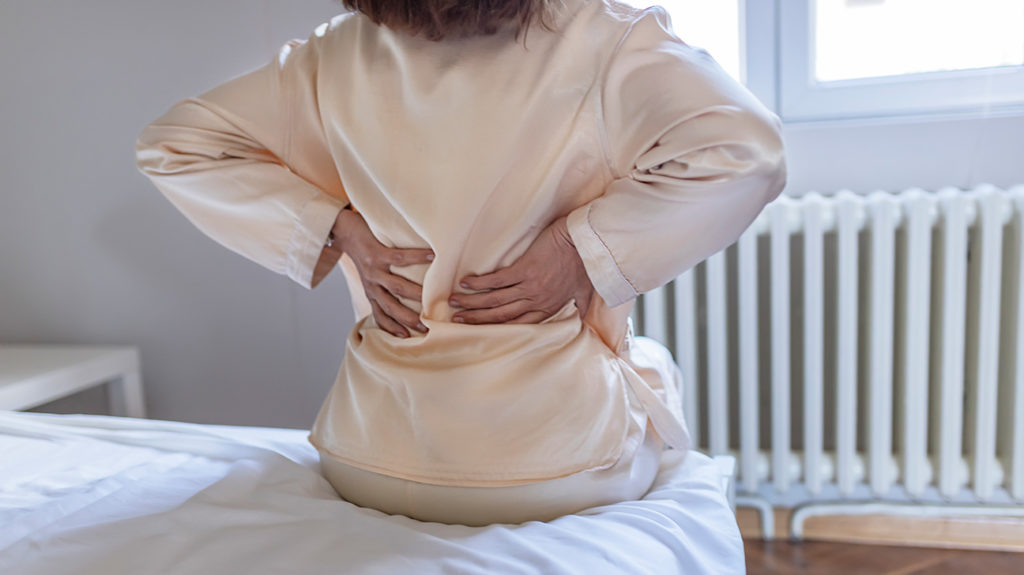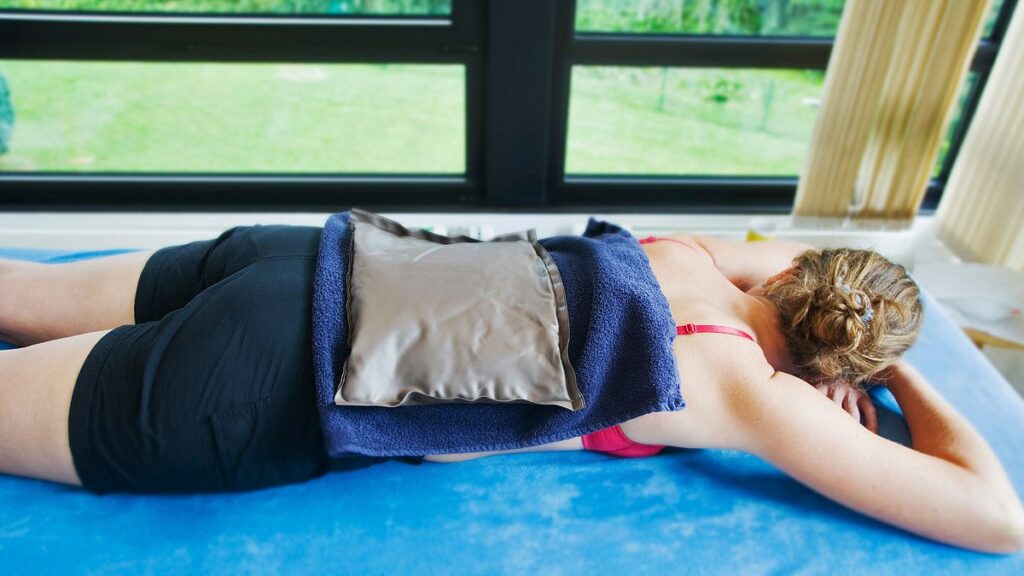Menstruation is a mentally and physically draining occurrence which all women go through every month. However, apart from the menstrual cramps, unannounced mood swings and abdominal pain comes another problem – lower back pain. It’s a common symptom in most women, very severe in some, and can affect their daily performance.
How can you get rid of this pain and the causes behind lower back pain – we’ll discuss everything in detail, so let’s dive in!
Causes Of Lower Back Pain During Periods
Of course, there are reasons behind your lower back pain during the period. Whether it is your sedentary lifestyle or just your hormones going crazy – there are specific causes that can explain the nature and types of pain women experience when menstruating.
Hormonal
It’s menstruation; obviously, we’ll have some hormones on the playing field.
Prostaglandins are hormones that trigger the contraction of the uterus. They constrict the blood vessels supplying the uterus lining, limiting the blood flow and cause the uterine lining to shed.
It’s these hormones that contribute to period cramps and the pain caused in the lower back.
Muscular
According to some studies, researchers have found that hormones cause the muscular ligaments to loosen during the period. Because of this laxity, the spine falls out of balance in many women and leads to lower back pain during periods.
Other Causes of Lower Back Pain
Back pain is not limited to menstruation. There are many other conditions with lower back pain as one of their highlighted symptoms. Let’s take a look at some of the common problems and familiarise ourselves with them:
1. Dysmenorrhea
One of the most common causes of lower back pain during periods is dysmenorrhea, which refers to the pain due to menstrual cramps. These cramps are usually caused by the increased production of prostaglandins which facilitate the shedding of the uterus lining.
Apart from pain, other symptoms of increased prostaglandin production are vomiting, nausea, headaches, and dizziness.
2. Pelvic Inflammatory Disease
Pelvic Inflammatory Disease, a.k.a PID, is known as the infection of the female reproductive organs. It is a sexually transmitted disease and is caused by bacteria.
One of the most common symptoms of PID is continuous lower back pain accompanied by fever. While PID can only be confirmed after a thorough physical examination, it is usually suspected of bleeding between cycles, unexplained pain in the pelvis, and painful urination.
3. Endometriosis
Endometriosis is a condition in which the endometrium grows out of the uterus.
One of the earliest and most common symptoms are painful periods. Suppose a woman is experiencing intense periods of cramps and severe lower back pain and cannot get pregnant. In that case, she might be suffering from this disorder.
4. Pregnancy
Another common reason behind lower back pain could be pregnancy. Pregnancy leads to the release of certain hormones, which cause the ligaments to become loose so that they can accommodate the baby and the growing uterus. Ligament laxity can eventually lead to lower back pain.
5. Premenstrual Dysphoric Disorder
It can be referred to as an extreme version of premenstrual syndrome. In this disorder, although the symptoms are similar to PMS, the mood swings are worse. Other symptoms include; lower back pain, muscle pain, trouble sleeping, anxiety, and more.
How To Diagnose Lower Back Pain Caused by Periods?
Well, it’s not really hard to distinguish lower back pain due to periods because it usually appears near the time when you’re about to have your periods or menstruating.
Suppose you experience lower back pain throughout the month, after sexual intercourse, or any other time when you’re not near or having your periods. In that case, it could point towards some underlying problems.
To find out what is causing this lower back pain, it is advised to visit a gynaecologist who shall help you find the real reason.
Symptoms Requiring Urgent Attention
There are some signs and symptoms that need the urgent attention of a healthcare professional. If you experience any of the following, it would be wise to visit a doctor as soon as possible:
- If the pain-relieving medications are not working
- Hefty bleeding
- If you are unable to get on with the regular tasks of the day
- Period pain is new to you and is suddenly worsening
- Home remedies show no betterment in the period of pain
- If period pain is accompanied by other problems such as pain after sex, or bleeding between periods
What Are The Treatment Options For This Problem?
Lower back pain during a period has a range of treatment options when it comes to home remedies. In addition, there are specific techniques that you can employ to improve the pain apart from taking pain-relieving medications.
Following are the most common treatment options:
- Try performing yoga and light exercises to keep your body in check. Not moving and lying on the bed all day long will actually cause the muscles to become more rigid.
- Putting heat pads on your back proves to be very helpful in relieving lower back pain during a period. You might want to steer clear of cold compresses as they are not very helpful.
- Going for pain-relieving medications like NSAIDS are another option that actually helps with the pain.
- Massages are never a bad option, and when it comes to lower back period pain – they prove to be quite impressive.
- Certain practices like drinking water, quitting alcohol and smoking, and maintaining a healthy diet are keys to avoiding period pain.
Conclusion
Experiencing back pain during periods is not alarming. It is a common symptom during periods and usually subsides in a day or two. With the above-mentioned techniques, you can manage the pain, but there’s no guarantee that the pain won’t return. Only lifestyle modifications and truly being healthy on the inside can help with period pain.
However, if you notice some alarming symptoms, then you should definitely consult a doctor as soon as possible.




Recent Comments